
Producing over 40% of teachers in South Africa
On 2 November 2017, the Leading Change Initiative held a roundtable discussion at Unisa. The theme of the discussion, Education and transformation, gave specific focus to the reasons why education is crucial in academic and social transformation and outlined the transformative progress of the College of Education (CEDU), as well as the predicted future of the college under the auspices of transformation and inclusion.
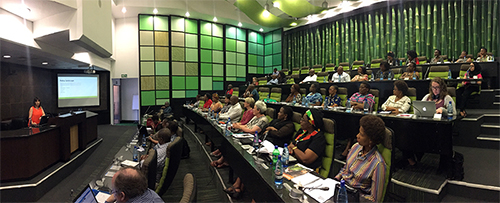
“It is almost needless for us to talk about, or emphasise, the importance of these kinds of discussions, because ultimately we have no choice but to transform,” said Professor Solomon Magano, Director of the College of Agriculture and Environmental Sciences, who chaired the event. “Rather the essence of these discussions is to have a Unisa-wide understanding of the success and the future projections of transformation.”
CEDU Executive Dean Professor Veronica McKay delved into the need for transformation in a post-apartheid society, and, specifically, in the education system, which is too broad and too systematic to change without intensive leadership. “The route for our own transformation in CEDU is our unique way of looking at the whole education system and how we, as academics, fit within that system,” she said.
“We have a history of struggle in our schooling system. We are still dealing with the legacy of apartheid, and while there exist documents on the transformation of higher education, the equity of access and the equity of success are still unanswered questions. We look at ourselves as a labour pool. With a large base of operations we are a labour force to contend with.”
“We are looking at de-racialising and de-genderising our work force because our system is still stratified and unequal,” said McKay. She noted that the path toward transformation leads through some murky areas, and that movements such as #RhodesMustFall have to be taken into account, as they force a stagnant system to change for the better of a complex populace.

Prof Veronica McKay (Executive Dean: CEDU)
“We have to consider that in the current curriculum the hegemony is Eurocentric. Anyone with a Marxist education will look at the curriculum and see that much of it is coloured by the hidden curriculum. We need to reclaim the conditions of African thought and while it is important that we focus on the national implications of transformation, we choose to look at the international and planetary auspices too.”
McKay went on to discuss the finer points of transformation, including the humanising of interactions between learners in school, between learners and teachers in the classrooms, but also between academics at the level of research, in the spirit of ubuntu. “That is our purview,” she said. “That is where we make our changes. We have to remember always that education is a basic. Everyone is equal before the law, but we are existing in a troubled system. No matter how much the Department of Education tries to overcome these problems, it is clear that the issues are a direct result of a system that used schooling as a tool for oppression. We cannot beat it by hitting it with a hammer, which is where the humanisation of our interactions comes into play.”
The statistics of education in South Africa paint a poor picture of the future of those who traverse the system. “At the end of the foundation phase, children show very low skills in reading and writing,” she said. “The cycle of poverty is just that, and without intervention, it will continue to debilitate our work force, our country, and our economy. Twenty-four percent of children in the 2013 household survey said that they had to leave school because of a lack of finances.”
“To change this, we need to focus on definitive improvements in our initial and continuing teacher development as a college,” said McKay. “We are moving towards a transformative paradigm in which we create a more just and equitable society. We have a huge role in the system, and we shape the thinking and practices of future teachers, who in turn will shape the thinking and practices of the learners who pass through their care.”
“Our commitment as the College of Education is to transform what we teach, how we teach, what we assess, how we research, and how we engage, she went on to add. In her breakdown of plans that lie ahead, McKay noted that changes have been set in motion at the college, such as the reconceptualisation of the curriculum, whereby all students will be working in their mother tongue.
Other changes and plans were also highlighted, such as the intention to aid students in learning life skills, the infusion of ubuntu into all phases and stages of education, and fostering a caring attitude towards transformation, which sings to the same tune as the humanisation of people relations. “This encompasses the journey from a destructive past to a caring future, moving from the I to the We, and creating a feeling of connectedness with all living and non-living things.”
In CEDU itself, the growth of associate professors has shown a clear increase in African men and women in similar posts. Full professor posts show some change, but are still catching up to the drastic changes at lower levels. According to McKay’s predictions, the changes wrought by associate professorships with begin to reflect in professorship posts within the next few years.
McKay also noted that changes are being made to ensure that first-year education students will have access to the South African Council of Educators (SACE) and, therefore, to the SACE code of ethics, which instructs budding teachers in ethical conduct in the classroom. She also noted that teachers will be licensed on content and pedagogy, thereby offering further support and necessary structure to the conduct of teachers.
*By Carmen Taxer
Publish date: 2017-11-07 00:00:00.0
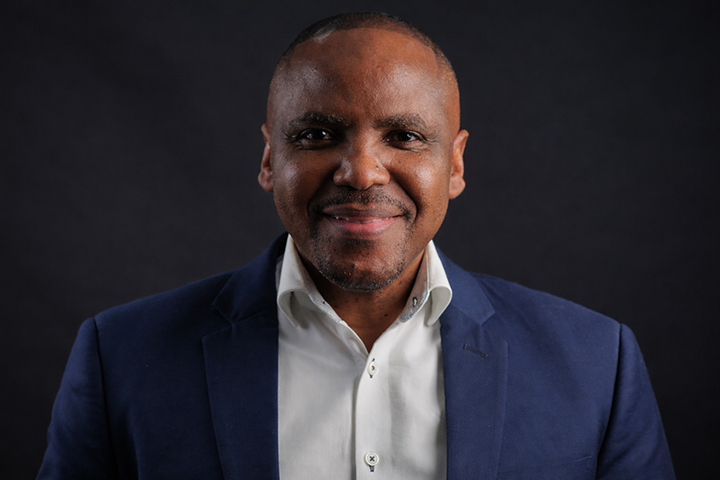 National leader in mathematics education aims to improve outcomes
National leader in mathematics education aims to improve outcomes
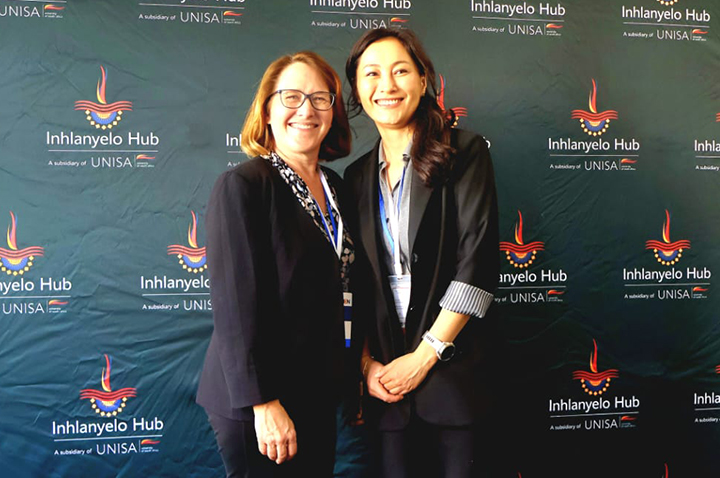 Unisa roundtable focuses on empowering SA women to lead in innovation
Unisa roundtable focuses on empowering SA women to lead in innovation
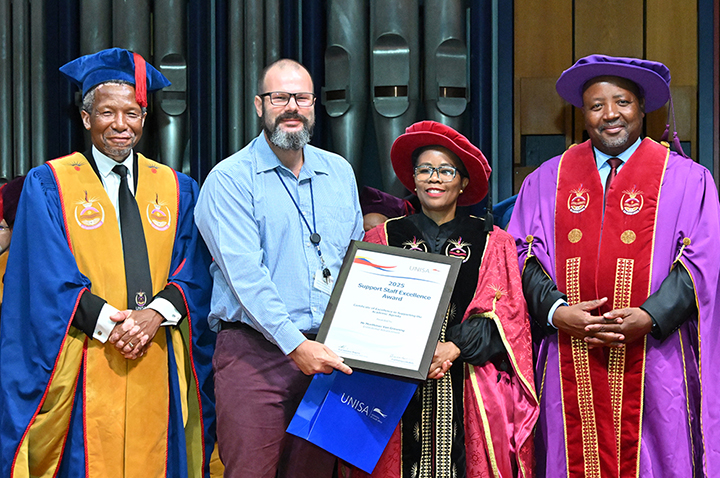 Unisan recognised for web excellence
Unisan recognised for web excellence
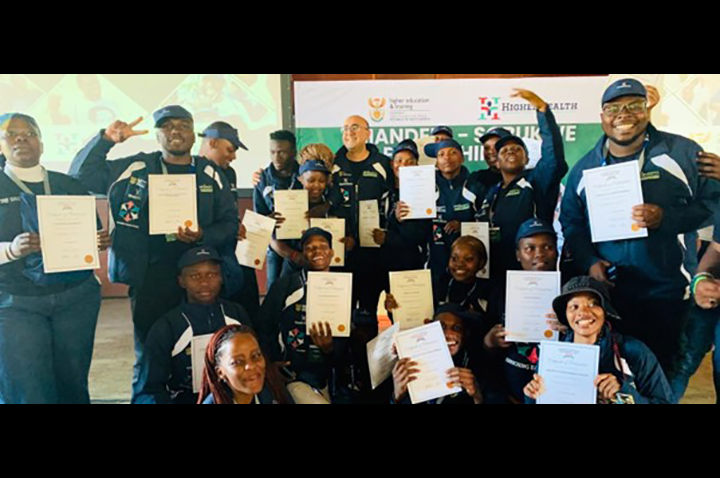 Office of the Dean of Students participates in leadership camp
Office of the Dean of Students participates in leadership camp
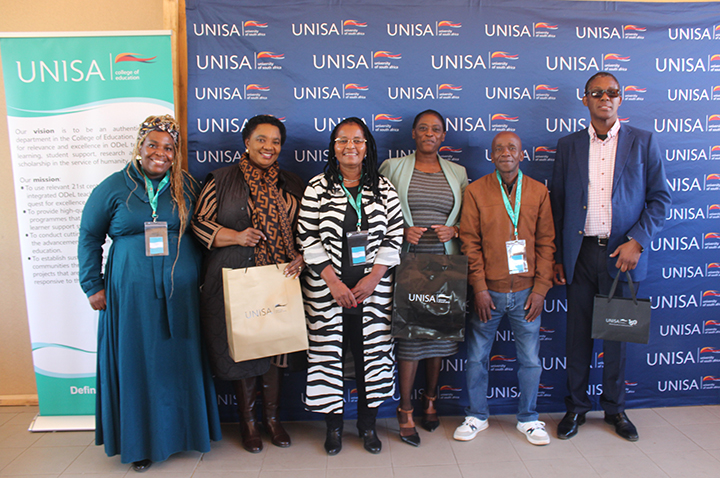 Unisa project fosters digital and pedagogical innovation in Limpopo schools
Unisa project fosters digital and pedagogical innovation in Limpopo schools